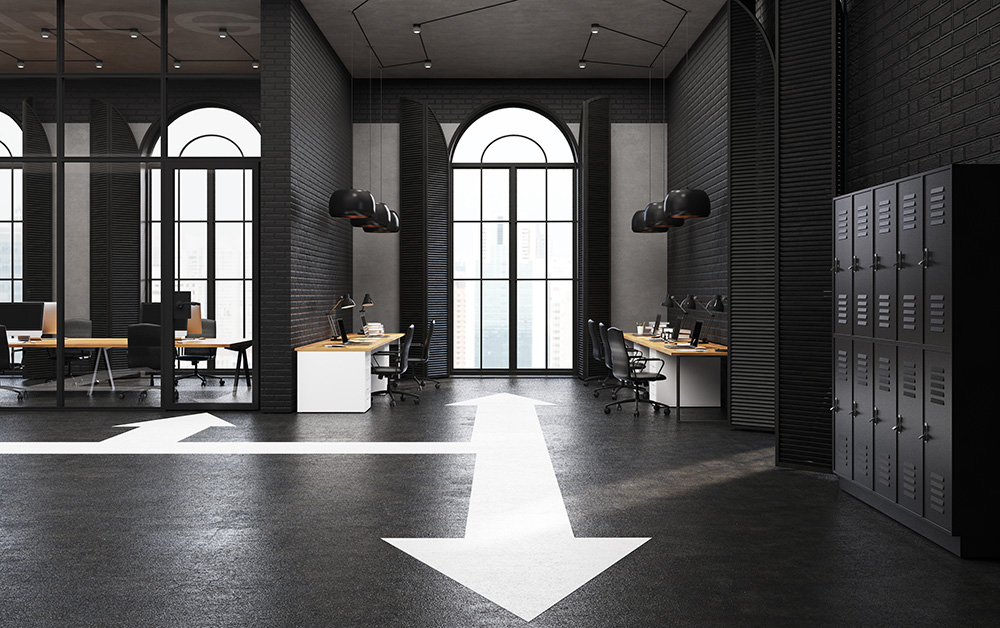When Americans start returning to office buildings, mitigating the spread of illness will be the top priority. Although it’s likely that some employees will continue working from home on a long-term basis, the demand for spaces that incorporate hygienic design will be tremendous. Building owners must adapt in order to stay relevant and competitive in the market.
Phased Planning
As employees resume jobs in the workplace, an initial approach might involve limiting the number of people in the building at any one time. Instead of having all associates work the same 8-to-5, companies might stagger start and stop times. Likewise, companies will also employ more robust janitorial methods and increase the frequency of deep-cleanings.
Still, these measures are probably just the initial phase of changes. Since the ultimate goal is to create an environment where employees feel safe, buildings will need increased physical distances between workers, which undoubtedly will result in global modifications to the interior layouts of buildings.
Tenant Demand For Safe Buildings
Although the changing nature of the pandemic makes a definitive statement premature, it seems logical that buildings where tenants feel safe will be at a premium. Consider some of the changes that will need to happen in most office buildings to promote social distancing and satisfy heightened safety measures:
- Touchless entry
- Protected receptionist and waiting areas
- Voice-controlled elevator operation
- Desks separated by six feet and physical barriers
- Conference rooms with maximum of 10 in-person attendees
- Dedicated video areas with cameras, lighting, sound, and backdrops
- Larger communal areas such as break rooms and kitchens
- Disinfectant stations
- Outdoor break areas
- Improved filtration and ventilation systems
- Anti-microbial furniture and carpeting
- UV lighting systems for disinfection
Tax Benefits For Building Owners
Let’s be honest, these changes don’t come without a price tag. Facility renovations are a large expense, but the improvements will bring added benefits and there are ways to offset the costs. MarksNelson has expertise in Cost Segregation Studies, which combines accounting and engineering to accelerate depreciation, increase current tax deductions, defer income tax, and increase cash flow. We also work as specialists in the negotiation of Property Tax Appeals, which can also help offset costs. These are only a couple of cost saving strategies that may work for your business. You will want to consult with your tax or business advisory professional to identify the best solution for your situation.
Building owners who act quickly to update the interior spaces of their properties will incur added expenses, but they will also reap the benefit of being early adapters of a new way of working. Give us a call to talk through strategies to offset costs if you’re considering updating your building to meet the demands of a new tomorrow.


